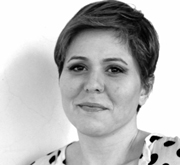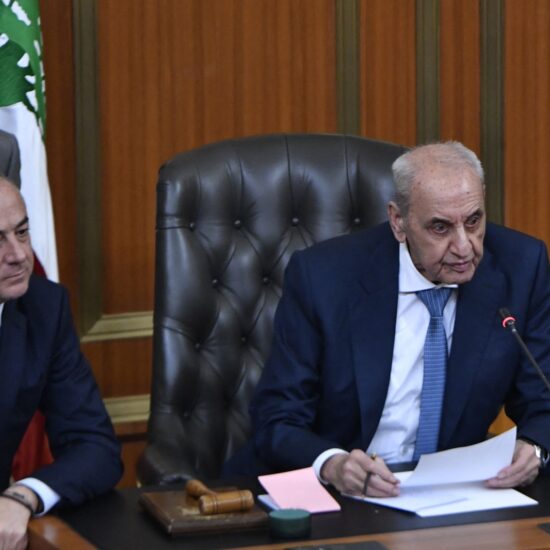Khalil Fayyad walks toward the couch in his living room without hesitation, goes around the little coffee table, sits down and puts on his sunglasses. He can still see shapes with his left eye, but the “right one is finished,” he says. His face still has deep scars from the bomb attack he survived three years ago, he still feels pain in one of his legs, and you have to shout for him to hear. But he is still a mountain of a man, and if he could see he would go back to work, he says.
Fayyad was former MP Antoine Ghanem’s bodyguard, his last one. The politician, a member of the Kataeb party, died on September 19, 2007 after being targeted by a car bomb in Sin al-Fil, a suburb of Beirut. The bodyguard remembers every second.
Ghanem had been getting threats for months and was living in Abu Dhabi for his own safety. “They used to tell him, ‘Watch out, don’t go around too much, they want to kill you. It might be a bomb, or they might just shoot you.’” Fayyad remembers.
In spite of Fayyad advising him to stay abroad, Ghanem came back to Lebanon on September 16, 2007. He wanted to be with his family, Fayyad says. The bodyguards took all necessary precautions. “We changed his car, exchanged the MP plates with normal ones, we bought a new phone SIM card and a new phone, and switched off the old phone. I kept it in my pocket,” he said. But it was all useless. On September 19, Ghanem insisted on seeing a friend in Sin al-Fil, and called him from his new cell phone to set up a meeting there.
“We stood by the cars. It was three of us [bodyguards]. We didn’t move; our eyes were on the cars. No car passed while he was inside. When we left, the bomb went off. And the next thing I remember is that I was in the hospital,” Fayyad says. “They must have known we were going there, because the bomb was left there before we arrived. There is no other explanation,” he says, his voice rising in anger. “We were right outside, on the street. We stood there; we never left the car alone so nobody could put a bomb under it. This is what made me wonder. They must have heard his conversation on the phone and knew we were going there,” he says.
Fayyad remembers asking from his hospital bed if Ghanem and the other two bodyguards made it. They only told him a month later that they were gone.
His wife, who is sitting next to him, shakes her head. “When I saw him there, in a room, all bandaged, I had to accept it. My son told me not to cry. I just wanted to see him to know he was alive. I couldn’t believe it,” she says, sighing.
The former bodyguard is reluctant to talk about what it feels like not to be able to work and support his family anymore. “This is my situation now. It’s very bad. I can’t do much about it. This is my life now,” he says quietly.
His wife explains that he doesn’t get any government pension after being wounded in the bomb attack. Fayyad gets help from ordinary people, while a benefactor pays his family’s rent and for his medicine.
“My condition will not get any better. My right eye is finished, and the doctor says my left eye will not get any better. Some of the nerves are destroyed. So I’ve accepted it. But if I could see properly, even with one eye, I’d go to work. My friend Tony has one eye, and he drives just fine. But I can’t. I avoid going out at night, because I fell once and I gave everybody a hard time.”
“I want to know who did this to him,” his wife says. “I would sleep better at night knowing that the killer is paying for it. Why would the blood of so many people be wasted for free?”
“Maybe I won’t get anything tangible out of it,” Fayyad says, “but it would change the way I feel. I will be able to go out on the street with my head high.”
Ana Maria Luca is a reporter with @NOW_leb. She tweets @AnaMariaLuca79.
Nadine Elali is a reporter with @NOW_leb. She tweets @Nadine_Elali.









